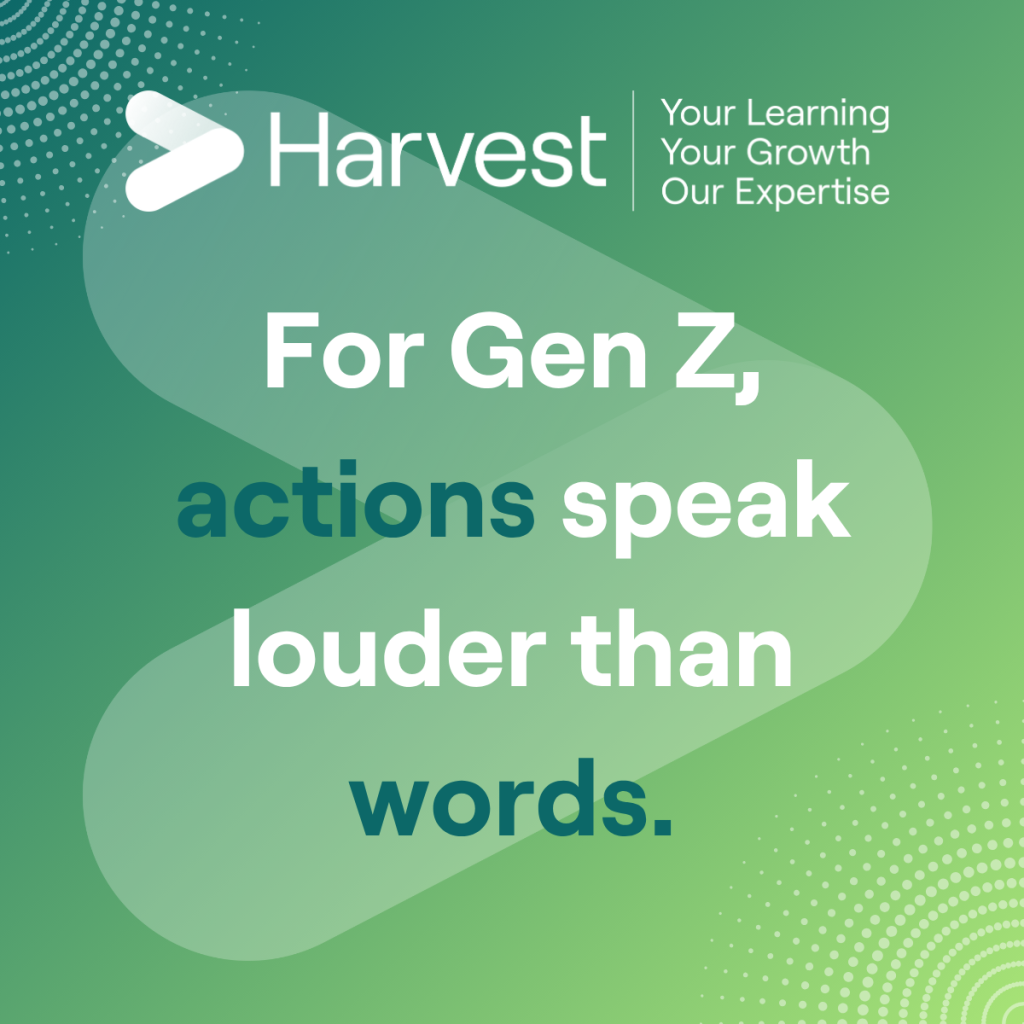Managers Are Struggling to Connect with Gen Z. Here’s Why.
Harvest 2025

Managers Are Struggling to Connect with Gen Z. Here’s Why.
As Gen Z becomes an increasingly dominant force in the workforce, making up 27% of employees in developed nations, employers are finding themselves on unfamiliar ground. Harvest’s research, backed up with global research, highlights a widening disconnect between employers and their youngest employees, rooted in differing expectations, communication styles, and workplace values.
The Context: A New Generation, A New Set of Rules
Born between 1997 and 2012, Gen Z is the first cohort of fully-fledged digital natives. Shaped by global financial instability, social media, climate anxiety, and the isolation of the pandemic, Gen Z views the world, and the workplace, through a radically different lens.
Unlike previous generations, they began their careers online, with many having completed their education and first jobs remotely. As a result, their baseline for what “normal” work looks like is already hybrid, flexible, and technology driven.
What’s Not Working?
1. Mismatched Expectations
While employers often expect graduates to arrive “job-ready,” Gen Z frequently lacks the real-world skills their roles demand, particularly in areas like communication skills, diary management, and business software. At the same time, this generation possesses strong digital fluency and a boldness to challenge the status quo, especially when it comes to work-life balance.
2. Communication Breakdowns
Harvest’s research indicates one of the strongest pain points is communication. Graduates report a lack of clarity around career progression, project expectations, and workflow changes – especially from line managers. Trust deteriorates quickly when promised experiences don’t materialize or when communication around changes is vague.
A Stanford study revealed that less than 25% of employees rated their managers as strong communicators. For Gen Z, who crave clarity, transparency and alignment with personal values, this failure to communicate effectively is a critical barrier.
3. Different Values, Different Priorities
Research also acknowledges Gen Z is not primarily motivated by traditional perks. Once hygiene factors on fair pay are met, they prioritise purpose, flexibility and personal career development. The most sought-after elements of a positive employee experience include clear development plans, mentorship, and opportunities to apply learning.
In contrast, many employers still rely on outdated recruitment models and static graduate programmes. This leads to feelings of disillusionment, high attrition, and missed opportunities to harness the full potential of young talent.
The Emotional Gap
Interestingly, research shows that Gen Z can often project more confidence than they feel, a phenomenon attributed to the curated realities of social media. As a result, managers often misread their competence or readiness, failing to provide the support this cohort still needs to thrive.
Moreover, Gen Z’s stress tolerance is relatively low compared to previous generations. Their expectations for immediate feedback, work-life balance, and personal relevance are high – and often unmet.
Bridging the Divide: What Employers Can Do
The “Joining the Dots” research offers actionable recommendations:
- Invest in Manager Training: Upskilling line managers in coaching and communication tailored to Gen Z and evolving workplace dynamics can significantly improve engagement and trust.
- Redesign Graduate Programmes: Transition from rigid rotations to user-led, skills-first pathways that offer transparency, flexibility, and real development.
- Facilitate Mentorship: Create structured peer and intergenerational mentoring models that help Gen Z integrate and grow with confidence.
- Embrace Personalisation: From benefits packages to career pathways, Gen Z responds best to tailored approaches, which starts with asking people where they are at and what they most value.
- Rethink Recruitment: Shift away from pure credential-based hiring to evaluating attitude, potential, and soft skills gained from any and all informal work experiences, from the start.
A New Leadership Mandate
To succeed with Gen Z, organisations must review each step in their employee experience journey. This means not just adapting how they attract recruit, train, and manage, but fundamentally rethinking what it means to lead in an era where authenticity, transparency, and purpose are non-negotiable.
As the report concludes: “For Gen Z, actions speak louder than words.” Employers that can meet these expectations are far more likely to attract, retain, and empower the next generation of leaders.
Click here to find out more about our Early Careers Portfolio of solutions: Early Careers Portfolio

